
Romanian Prime Minister Nicolae Chuque said that after the commissioning of the Greece-Bulgaria interconnector on Thursday, his country will be able to supply natural gas to Moldova and Ukraine, European Pravda reports with reference to the Romanian news portal Digi24.
“Essentially, this interconnector will connect the network passing through Anatolia and the Adriatic, as well as connect to the BRUA pipeline, thus ensuring gas supplies to Bulgaria and Romania,” Chuquet said at a press conference with Greek Prime Minister Kyriakos Mitsotakis.
“And, of course, we can provide gas supplies to our eastern partners – Ukraine and the Republic of Moldova and other countries according to the distribution scheme of this gas network,” the Romanian prime minister added.
COMMISSIONING, GAS, GREECE-BULGARIA, INTERCONNECTOR, MOLDOVA, ROMANIA, UKRAINE
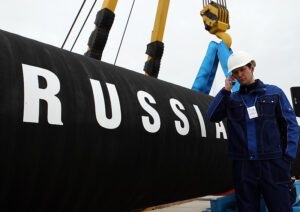
The volume of gas supplies from Russia to Europe has now halved compared to last summer, and their further decline is not ruled out, European Commission energy member Kadri Simson said on Monday.
“Gas deliveries from Russia now make up half of the volumes that we received at the same time last year. They may continue to decline,” Simson said before the EU meeting at the level of ministers of energy, transport and telecommunications.
With regard to gas supplies, the EU is ready for any developments, she stressed.
Simson added that at the meeting on Monday, she will present to the ministers concrete steps that, in her opinion, would help the countries of the union to be better prepared for the reduction in gas supplies. One such step is coordinating a reduction in demand for gas.
On Saturday, Simson said that 12 EU states were completely or partially left without gas from Russia. She added that last week the EU reached an agreement to increase gas supplies with Israel and Egypt, deepened cooperation with Norway, and final direct negotiations with Azerbaijan.
Simson stressed, BNS reports, that joint gas purchases require unanimity and coordination between member states, and that the work of the European Commission creates the necessary conditions for this.
“The good news is that in May, a record was once again set for the flow of LNG to Europe – 12.8 billion cubic meters – this is the largest monthly volume in history,” she said.
At the end of May, it was reported that Poland, Bulgaria, Finland and the Netherlands, due to their refusal to accept the new settlement system, had lost the opportunity to receive Russian gas.
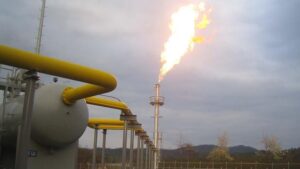
In January-May 2022, Ukraine produced 7.831 billion cubic meters of natural gas, which is 1.9% more than in the same period last year (7.687 billion cubic meters), according to the infographics of the Energy Suppliers Association (ESA).
According to it, the average daily gas production in May increased by 1% compared to April, but is still below the pre-war production of this year. In particular, in January this figure was 55.4 million cubic meters per day, in February – 54.5 million cubic meters, in March – 49.9 million cubic meters, in April – 49.6 million cubic meters, and in May – 50.1 million cubic meters.
At the same time, according to the association, in May a number of private companies managed to bring gas production to a double level.
According to the association, amid Russian military aggression, gas consumption in the country continues to decline, which amounted to 11.726 billion cubic meters in the first five months of this year. In particular, in January 2022 it amounted to 3.972 billion cubic meters (less by 4% compared to January 2021), February – 2.822 billion cubic meters (less by 34%), March – 2.735 billion cubic meters (less by 24%), April – 1.483 billion cubic meters (less by 33%), and May – 0.714 billion cubic meters (less by 46%).
Earlier, the Cabinet of Ministers instructed NJSC Naftogaz Ukrainy to increase gas reserves in underground storage facilities (UGS) to 19 billion cubic meters at the beginning of the heating season 2022-2023, while 10 billion cubic meters on June 1, 2022.
While maintaining consumption of about 25 million cubic meters per day and production of about 50 million cubic meters per day during June-September, Ukraine will be able to replenish stocks in storage facilities during this period by 3 billion cubic meters, while up to 6 billion cubic meters of gas will be needed to import. Some of these volumes can be brought into UGS facilities for their storage by foreign companies.
At the same time, the head of the Energy Committee of the Verkhovna Rada, Andriy Gerus, specified in early June that plans for 19 billion cubic meters in storage could be adjusted depending on a number of factors.
ESA, GAS, PRODUCTION
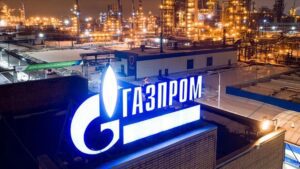
Gas Transmission System Operator of Ukraine (GTSOU) has accepted a request from Gazprom for Thursday to transport 41.9 million cubic meters of gas through the country compared to 41.4 mcm on Wednesday, data from GTSOU indicate.
“Gazprom is supplying Russian gas for transit through the territory of Ukraine at the volume confirmed by the Ukraine side via the Sudzha metering station at 41.9 million cubic meters on June 9, with no booking via the Sokhranivka metering station,” Gazprom spokesman Sergei Kupriyanov told reporters.
Capacity was requested only through one of two entry points into Ukraine’s Gas Transmission System, the Sudzha metering station. A request was not accepted through the Sokhranivka metering station.
GTSOU has declared a force majeure in regard to accepting gas for transit through Sokhranivka, citing the fact that it cannot control the Novopskov compressor station.
Gazprom believes there are no grounds for a force majeure or obstacles to continuing to operations as usual. Ukrainian specialists worked smoothly at the Sokhranivka and Novopskov stations all this time and continue to do so; transit through Sokhranivka was ensured in full, and there were and are no complaints from counterparties, the Russian gas giant has said.
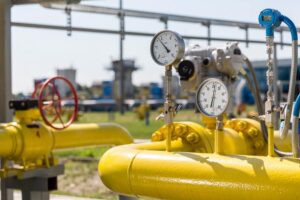
Ukraine’s Gas Transmission System Operator (GTSOU) has accepted a request from Gazprom for Monday to transport 40.1 million cubic meters of gas through the country, virtually unchanged from 40.4 mcm on Sunday, data from GTSOU show. Capacity was requested only through one of two entry points into Ukraine’s Gas Transmission System, the Sudzha metering station. A request was not accepted through the Sokhranivka metering station.
“Gazprom is supplying Russian gas for transit through the territory of Ukraine at the volume confirmed by the Ukraine side via the Sudzha metering station at 40.1 million cubic meters on June 6, with no booking via the Sokhranivka metering station ” Gazprom spokesman Sergei Kupriyanov told reporters.
GTSOU has declared a force majeure in regard to accepting gas for transit through Sokhranivka, citing the fact that it cannot control the Novopskov compressor station.
Gazprom believes there are no grounds for a force majeure or obstacles to continuing to operations as usual. Ukrainian specialists worked smoothly at the Sokhranivka and Novopskov stations all this time and continue to do so; transit through Sokhranivka was ensured in full, and there were and are no complaints from counterparties, the Russian gas giant has said.
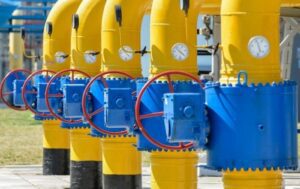
Gas Transport System Operator of Ukraine (GTSOU) has accepted a request from Gazprom for Wednesday to transport 53.9 million cubic meters of gas through the country, up from 48.8 mcm on Tuesday, data from GTSOU show.
The capacity was requested only through one of two entry points into Ukraine’s Gas Transmission System, the Sudzha metering station. A request was not being accepted through the Sokhranivka metering station.
“Gazprom is feeding Russian gas for transit through Ukraine’s territory in the amount confirmed by the Ukrainian side through the Sudzha gas metering station – 51.6 mcm for May 18. The request for the Sokhranivka gas metering station was declined,” Gazprom spokesman Sergei Kupriyanov told reporters.
GTSOU declared a force majeure in regard to accepting gas for transit through Sokhranivka, citing the fact that it cannot control the Novopskov compressor station.
Market
As prices decrease on the market, Europe’s liquefied natural gas (LNG) imports are beginning to fall somewhat in May from the record high of April, when the European gas transport system took in 10.651 billion cubic meters or 355 mcm per day from LNG terminals. As of the last reporting date, May 16, use of regasification capacity at European terminals was at 63%, which is far from the peak of 77% at the end of April.
The region is continuing to inject gas into underground gas storage (UGS) facilities, reserves in which now stand at 40.52%, up by 0.45 percentage points from a day earlier, data from Gas Infrastructure Europe show. Reserves in Europe’s UGS currently lag 3.5 percentage points behind the five-year average.
Injection into UGS in April was slowed by high prices for imported gas, but in May imports from Russia increased and the pace increased. In the first 16 days of May, the pace of gas injection into UGS exceeded the five-year average by 48%, compared to just 12% in April.
Europe imposed tight regulation of the use of UGS this year. Reserves are supposed to be at least 80% of UGS capacity by the start of the offtake season in 2022 and subsequently increase to 90%. However, European Union officials continue to oppose Russia’s new conditions for paying for gas. This could lead to the suspension of supplies to other countries as has already happened with Poland and Bulgaria, and makes it harder to fulfil this directive.
Wind power contributed almost 17% of electricity generation across the European Union in the week from May 9 to 15. The figure dropped to 12% in the first two days of the new week, data from WindEurope show.